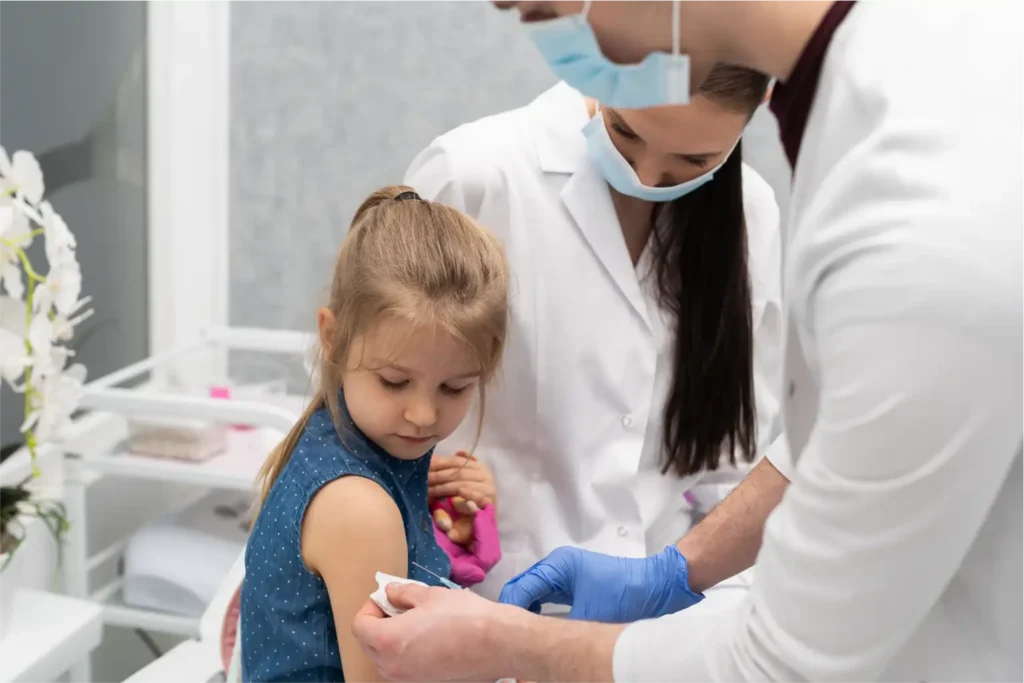
US kindergarten vaccination rates: Vaccination rates among US kindergarteners have declined for the third consecutive year, while the number of parents opting out of vaccine requirements has reached a record high, according to new data quietly released by the Centers for Disease Control and Prevention (CDC).
The national exemption rate among kindergartners rose to 4.1% in the 2024-25 academic year, up from 3.7% the previous year. Most of these exemptions were for nonmedical reasons, including personal or religious beliefs, a growing trend that public health experts say is threatening decades of progress in childhood disease prevention.
At the same time, measles-mumps-rubella (MMR) vaccine coverage slipped again to 92.5%, below the 95% threshold needed to prevent outbreaks. Before the COVID-19 pandemic, the US consistently met that benchmark. The latest figures come amid the worst US measles outbreak in more than 30 years, with over 1,300 cases reported so far this year.
Also Read | US faces surge in whooping cough cases amid declining vaccination rates
“The concern, of course, is that with a further dip in coverage, we’re going to see even more measles in the coming months,” warned Dr. Sean O’Leary, a pediatric infectious disease specialist with the University of Colorado and spokesperson for the American Academy of Pediatrics.
Despite the surge in measles cases, particularly in hard-hit states like Texas, legislation in some areas has made it easier for parents to opt out of school vaccine mandates. Texas, which accounted for more than half of national measles cases this year, passed a new law easing exemption requirements.
Historically, the CDC has emphasised the importance of community protection and herd immunity in its messaging. But this year, the agency offered a noticeably softer tone, stating only that “the decision to vaccinate is a personal one” and that parents should “consult their health care providers.” Some experts believe the shift reflects the influence of US Health Secretary Robert F. Kennedy Jr., long known for his anti-vaccine stance before joining the Trump administration.
Experts point to online misinformation, lingering distrust after COVID-19 vaccine debates, and policy changes as contributing factors to the decline. Still, the vast majority of parents continue to follow recommended vaccine schedules, and experts say that improving access, not just addressing hesitancy, is essential.








